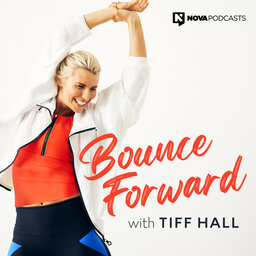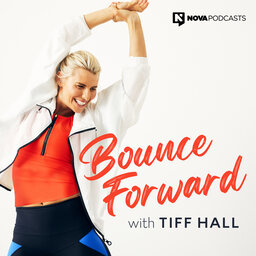Dr Lauren Burns' Gold Medal Mindset
Dr Lauren Burns is an Olympic Gold Medal winner in the sport of taekwondo at the Sydney 2000 Olympics. She was the first to win a gold in taekwondo for Australia, and on the sidelines coaching her, was Tiff's Dad Martin.
Today they reminisce about the moment Lauren won, what preparations she had to go through and how she impacted Tiff's life!
LINKS
- Follow Tiff Hall on Instagram @tiffhall_xo, Youtube, and Facebook
- Follow Lauren Burns on Instagram @laurenburnsgold
- Email Tiff at bounceforward@novaentertainment.com.au
- Find out more about Tiff Hall and TXO https://mytxo.com/
- Follow Nova Podcasts on Instagram for videos from the podcast and behind the scenes content – @novapodcastsofficial.
CREDITS
Host: Tiff Hall
Guest: Lauren Burns
Executive Producer: Rachael Hart
Editor: Adrian Walton
Managing Producer: Ricardo Bardon
Find more great podcasts like this at novapodcasts.com.au
Nova Entertainment acknowledges the traditional custodians of the land on which we produced this podcast, the Wurundjeri people of the Kulin Nation. We pay our respect to Elders past and present.
In 1 playlist(s)
Bounce Forward
We always hear we need to bounce back...We think you should ‘Bounce Forward!’ Join Fitness Guru an…Social links
Follow podcast
Recent clips

We're Taking a Break, But We'll Be Back
06:17

Rachel Corbett Was on a Sure Path to Post-Natal Depression
13:04

Rachel Corbett's Solo Birth Story
17:32
 Bounce Forward
Bounce Forward